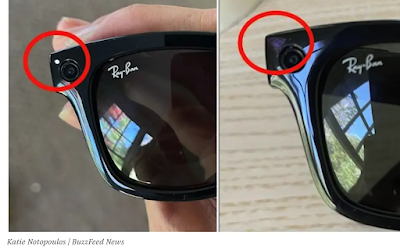Not so long ago, Secret Agent Man could globe-hop with impunity (
sing-a-long) and hide with undercover diplomatic immunity. Now, he may as well wear the Scarlet Letter "A", for Agent.
WTF happened? Quite a bit...
9/11, for one. It's not so easy to fly
under the radar these days.
In 2014, U.S. spies were exposed when the Office of Personnel Management was hacked. About 22 million fingerprints, security clearance background information, and personnel records allegedly fell into Chinese hands. In 2015 it happened again.
One can be fairly sure this isn't just a problem for U.S. spies. Other countries get hacked, too. You just don't hear about it.
If all this wasn't bad enough, a spy's best friend turned on him in the 2000's. Technology.
Video cameras are planted everywhere, and
facial recognition is becoming more
accurate every day. It is being used at airports, in
buildings, and with in conjunction with
city surveillance cameras. This list will grow, of course.
The latest advancement is
analysis of video streams using
artificial intelligence logarithms. Suspicious movements, packages left unattended, predictions of future movements and crimes are analyzed by mindless machines 24/7, waiting to trigger an alert.
On the communications side spyware is a concern. Smartphone and GPS tracking don't help spies hide either.
It has been reported that some countries are compiling real-time databases which incorporate the above-mentioned speed bumps with: taxis, hotel, train, airline, credit card, customs and immigration information. As soon as one enters the country, they know where you are—minute by minute. And, if one takes too long going between locations, or a dual timeline appears (being in different places at the same time), a security alert is generated.
Couple all this with countries sharing information, e.g. EU, being a spy who needs to make in-person contacts becomes nearly impossible.
Think staying out of view is a good spy strategy? For now, perhaps. However, progress is being made by constructing a person's face by the
sound of their voice.
The future of spying (no, it won't go away) will be radically different out of necessity. One can only guess how, but I understand they are working very hard on
mind-reading.
Be seeing you.




















